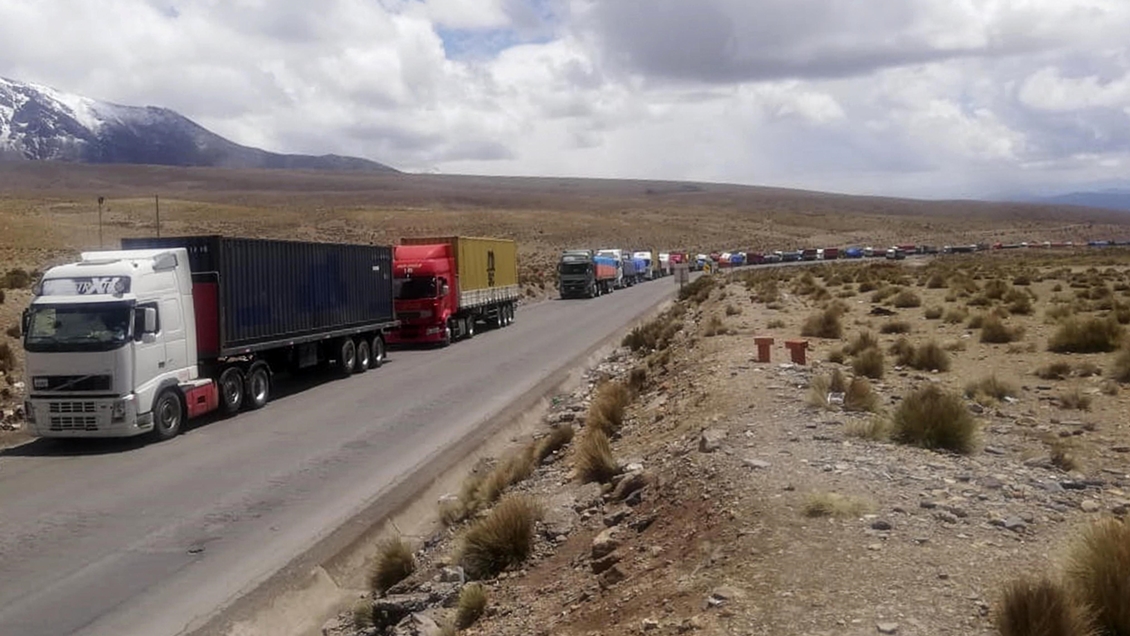RIO DE JANEIRO, BRAZIL – Bolivia set up PCR testing points to detect Covid-19 at its main border crossings with Chile to speed up the passage of hundreds of stopped trucks waiting for their turn to carry Bolivian merchandise in Pacific ports.
The measure was adopted after Chilean authorities stated that the problem was due to “hundreds of forged proofs” presented by Bolivian carriers, informed Chile’s Vice Minister of Foreign Trade, Benjamín Blanco.
The vice-minister explained that the behavior of Bolivian drivers “has led Chile to impose a mechanism” such as nasal antigen tests to corroborate the actual health situation of each driver.

It caused the flow at the border to decrease and the trucks to accumulate. The situation worsened when positive cases were detected amongst officials on the Chilean and Bolivian sides at the beginning of January.
IMMEDIATE EFFECTS
Blanco explained that since January 27, “Bolivia has begun to take charge of the PCR tests” and that the National Institute of Health Laboratories (INLASA) executes them, which are processed in La Paz and then sent to Chile, to guarantee the authenticity of all tests.
The Bolivian official detailed that, with this measure, it has been possible to reduce a line of almost 1,500 trucks to 700 in Tambo Quemado and from 600 to 250 trucks in Pisiga, which are the Bolivian passes to the Chilean ports of Arica and Iquique, respectively.
However, Blanco stressed that “this mechanism must continue to function” to ensure that both routes are cleared and that Bolivian export and import cargo flow is restored.

